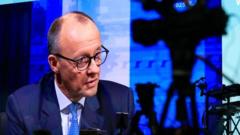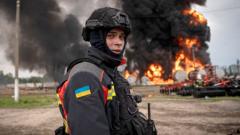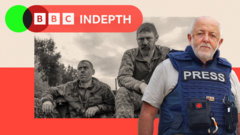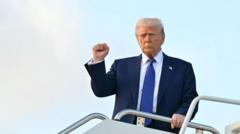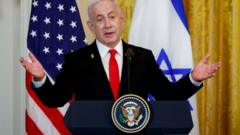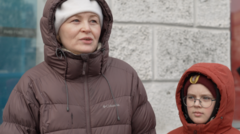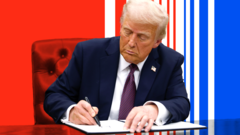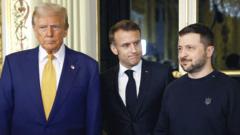Following Donald Trump's victory in the U.S. presidential election, there are new complexities emerging in the ongoing conflict between Russia and Ukraine. President Vladimir Putin perceives opportunities as American support for Ukraine wanes and European allies seek security assurances from Washington.
New Dimensions in the Russia-Ukraine Conflict: Trump’s Influence on Putin

New Dimensions in the Russia-Ukraine Conflict: Trump’s Influence on Putin
The dynamics of the Russia-Ukraine war shift with Donald Trump's return to power, reshaping U.S. foreign policy and its impact on global alliances.
As the war in Ukraine enters its third year, the geopolitical landscape is shifting dramatically with Donald Trump’s unexpected return to power. President Vladimir V. Putin has capitalized on the new U.S. administration’s different approach to international relations, particularly regarding Russia. During a recent public address in Sochi, Putin proclaimed that a "new world order" is emerging, directly linking the power dynamics in the West with the ongoing conflict in Ukraine.
In the wake of Trump's victory, the U.S. stance towards Ukraine appears to have softened considerably. Gone are the days of strong rhetoric from the White House pledging unwavering support to Ukraine against Russian aggression; now, doubts loom regarding the commitment of the United States to its European allies. This uncertainty has given rise to fears among nations neighboring Russia about their own security, as they ponder whether the Trump administration will provide adequate support against a reinvigorated Moscow.
Trump's recent remarks advocating closer ties with Russia and his critical stance on Ukrainian President Volodymyr Zelensky mark a substantial departure from the United States' previous foreign policy. Observers note that Trump's fascination with military power and territory—such as his quip about acquiring Greenland—has also translated into a preference for negotiations over confrontation, potentially favoring Putin's agenda in the region.
As the situation continues to develop, the outcome of this renewed geopolitical landscape remains uncertain. Trump's actions and policies may either exacerbate tensions in Eastern Europe or forge new pathways for diplomatic engagement, shifting the balance of power not only in the Russia-Ukraine war but also across Europe at large. As both sides of the conflict navigate this new terrain, the implications of Trump's presidency on the wider world will likely resonate for years to come.

